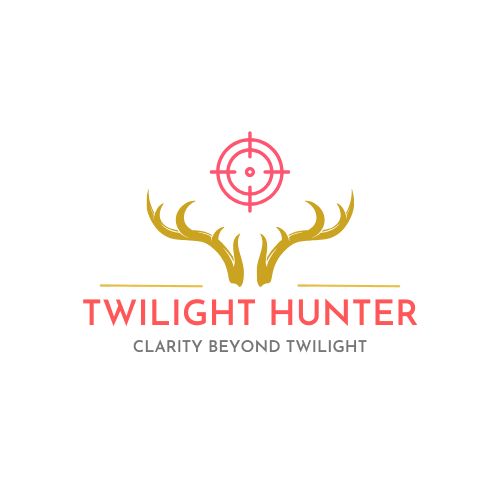

In rural areas across the country, hunting season is not just a mere event, but a cherished cultural tradition. It serves as a time for communities to come together, connect with nature, and create lasting memories. With various hunting seasons for different species, dressing appropriately and prioritizing safety is paramount.
Wearing blaze orange or fluorescent pink not only helps fellow hunters easily identify each other in the wilderness but also ensures everyone’s well-being. Hunting not only provides a source of sustenance for many rural families but also has a significant economic impact on local businesses.
Moreover, the process of butchering and processing the animals is often done by the hunters themselves, helping to foster self-reliance and a deeper appreciation for the food on their plates. Registration stations also serve as meeting places for hunters, where camaraderie and community thrive.
Hunter’s Education classes have an essential role in preparing new hunters for safe and responsible practices. Hunting is about more than just shooting; it’s about the connection with nature and the creation of treasured memories that will be cherished for a lifetime.
Hunting Season in Rural Areas
Hunting season is a significant cultural tradition in many rural areas. It is a time when friends and family come together to enjoy the great outdoors and engage in the age-old practice of hunting. Whether it’s for sport or sustenance, hunting season holds a special place in the hearts of many rural communities.
Significance of hunting season in rural areas
In rural areas, hunting season is more than just a recreational activity. It is deeply rooted in tradition and serves as a way of life for many people. The experience of hunting provides a sense of connection to nature and a feeling of self-reliance. It allows individuals to put their skills to the test and provides a means of providing food for their families.
Various hunting seasons for different species of animals
Hunting seasons are carefully controlled and regulated to ensure the sustainability of wildlife populations. Different species have different hunting seasons, which are determined by factors such as population size, reproductive patterns, and conservation efforts.
For example, there may be separate seasons for deer, turkey, duck, and small game. This allows hunters to target specific species during their designated times and helps maintain a healthy balance in the ecosystem.
Safety Measures and Appropriate Dressing
When it comes to hunting, safety should always be a top priority. Dressing appropriately is a crucial aspect of ensuring a safe and successful hunting experience.
The importance of dressing appropriately for safety
Rural areas can present various challenges and hazards, from rough terrain to inclement weather conditions. As a hunter, it is important to dress appropriately for these conditions.
This means wearing clothing that protects from the elements, such as waterproof jackets, insulated pants, and sturdy boots. It is also essential to dress in layers to regulate body temperature and stay comfortable throughout the day.
Wearing blaze orange or fluorescent pink for visibility
In addition to dressing for the weather, hunters must also consider their visibility to other hunters. Wearing colors such as blaze orange or fluorescent pink is highly recommended, as it helps distinguish hunters from wildlife. These bright colors make it easier for others to spot you in the field, reducing the risk of accidents and mistaken identity. This simple precaution can be a lifesaver.
What Kind Of Crossbow Is Used For Deer Hunting?
Hunting as a Source of Food
For many rural families, hunting serves as an important source of food. It allows them to have access to nutritious, organic meat that they can provide for themselves.
Hunting provides sustenance for many rural families
In rural areas where access to fresh, locally sourced meat can be limited, hunting provides a means of self-sustainability. By hunting their own game, families can ensure a steady supply of high-quality protein to feed their loved ones. Hunting serves as a direct connection to the food chain, allowing individuals to be actively involved in the procurement and preparation of their meals.
Butchering and processing by hunters themselves
One of the unique aspects of hunting as a source of food is the process of butchering and processing the harvested animals. Many hunters take pride in not only the hunt itself but also in the skills required to properly handle the animal after the kill
. They learn how to skin, gut, and butcher the animal to yield the highest-quality meat possible. This hands-on process adds to the satisfaction and appreciation of the food that hunting provides.
Economic Impact on Local Businesses
Hunting season has a significant economic impact on local businesses in rural towns. It brings in revenue and supports local economies in a variety of ways.
Hunting season’s influence on local economies
When hunting season arrives, rural towns see an influx of hunters and outdoor enthusiasts from both near and far. This increase in visitors translates into increased business for local hotels, restaurants, and shops.
Hunting licenses, ammunition, hunting gear, and other related products and services are in high demand during this time. The revenue generated from hunting season helps support local businesses and stimulates economic growth in the area.
Supporting local businesses in rural towns


This image is property of dailyyonder.com.
As a responsible hunter, supporting local businesses should be a priority. By purchasing supplies and services from local establishments, you are contributing directly to the local economy. Additionally, these local businesses often have extensive knowledge of the local hunting grounds and can provide valuable insights and assistance to enhance your hunting experience.
Community and Camaraderie
Hunting is not just about the act of shooting; it is also about the sense of community and camaraderie that comes with it. Hunting brings people together and creates lasting bonds.
The role of community in Hunting
In rural areas, hunting is often a shared experience among friends, family, and neighbors. It is a time when people come together, sharing stories, techniques, and tips. From planning hunting trips to gathering around the dinner table to enjoy the fruits of their labor, hunting fosters a sense of community and belonging.
Is It Legal To Hunt With A Crossbow?
Registration stations as meeting places for hunters
Registration stations serve as more than just a location for hunters to legally register their harvested game. They also serve as gathering spots and meeting places for hunters, allowing them to exchange information and experiences.
Registration stations often become social hubs during hunting season, where hunters can catch up with old friends, make new ones, and share in the camaraderie that comes with pursuing a common passion.
Hunter’s Education
Hunter’s Education classes play a vital role in preparing new hunters for safe and responsible hunting practices. These classes provide essential knowledge and skills to ensure a successful and ethical hunting experience.
The importance of Hunter’s Education classes
Hunter’s Education classes cover a wide range of topics, including firearm safety, wildlife conservation, hunting laws and regulations, ethics, and survival skills.
These classes provide aspiring hunters with the necessary tools and knowledge to make informed decisions in the field. By learning about responsible hunting practices, hunters can minimize the potential risks associated with hunting and ensure the sustainability of wildlife populations.
Top 6 Recurve Crossbows for Your Hunting Adventures
Preparing new hunters for safe and responsible hunting


This image is the property of i0.wp.com.
Hunter’s Education classes are particularly important for new hunters who may not have grown up in hunting families or communities. These classes instill a sense of responsibility, respect for nature, and ethical behavior in hunters.
They teach crucial skills such as proper firearm handling, shot placement, understanding animal behavior, and wilderness survival techniques. By completing these classes, hunters are equipped to be safe, responsible, and ethical stewards of the land and wildlife.
Connecting with Nature and Creating Memories
Hunting is not just about the pursuit of game; it is also a means of connecting with nature and creating lasting memories.
Expert Reviews Of The Best 5 Crossbow Scopes For Hunting
Hunting as a way to connect with nature
In today’s modern world, many people are disconnected from the natural environment. Hunting provides an opportunity to immerse oneself in nature, to observe and appreciate its beauty.
Whether it’s the quiet tranquility of a forest, the thrill of spotting wildlife, or the stunning vistas of rural landscapes, hunting allows individuals to experience the wonders of the natural world firsthand.
Creating lasting memories through hunting experiences
Hunting experiences often create cherished memories that last a lifetime. Whether it’s the first successful hunt, a shared adventure with loved ones, or the bittersweet moments of reflection in the wilderness, hunting provides opportunities for personal growth, introspection, and bonding with others. These shared experiences become part of one’s narrative, woven into the fabric of their life story.
In conclusion, hunting season in rural areas holds significant cultural, economic, and social importance. It serves as a time for people to come together, connect with nature, provide sustenance for their families, and support local businesses.
By dressing appropriately, prioritizing safety, and participating in Hunter’s Education classes, hunters can ensure a responsible and enjoyable hunting experience. Hunting season is not just about the hunt itself; it is about creating lasting memories and forging bonds with the natural world and fellow hunters.




